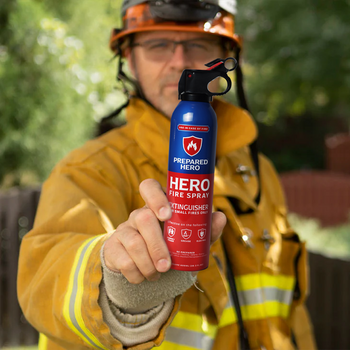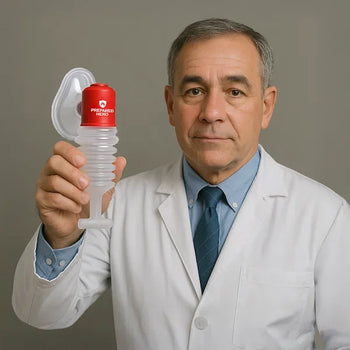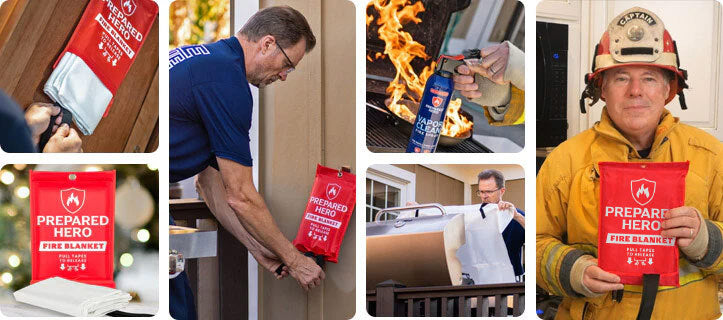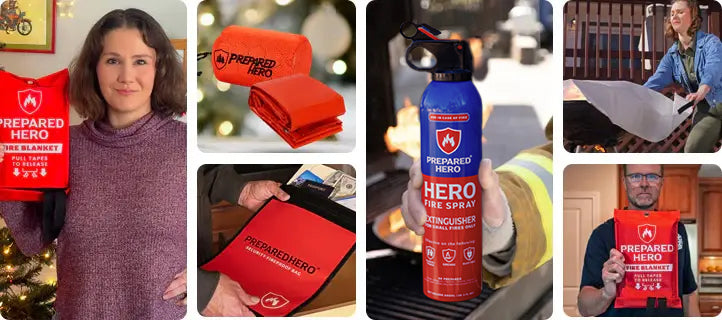Where you put your smoke detectors matters just as much as installing them. Proper placement makes sure they can detect...
Fire extinguishers are crucial to keeping your loved ones and property safe. As much as we want them to last forever, factors like chemical reactions and nozzle pressure can affect their effectiveness against fire. So, how long do fire extinguishers last? Keep on reading to find out.
How Long Do Fire Extinguishers Last?

Unfortunately, there's no universal answer to this question.
Fire extinguishers expire and become less effective over time. However, they don't have a universal expiration date. This means there's no predetermined timeline to follow or exact number of years you can use a fire extinguisher before it expires. Plus, specific models become obsolete as regulations change and technology advances.
However, there are general rules to help you determine how long your fire extinguisher can last. Here are the factors that affect your fire extinguisher's lifespan:
- Type of fire extinguisher
- Whether it is portable, rechargeable, or disposable
- The maintenance it requires
- Manufacturing date
- Manufacturer's guidelines for replacement
Most manufacturers say a well-maintained fire extinguisher lasts 10 to 12 years.
According to the National Fire Protection Association (NFPA), here are the two fire extinguisher guidelines you need to know:
- You should replace disposable fire extinguishers every 12 years.
- You should recharge rechargeable fire extinguishers every six years.
You should also replace or service an extinguisher if you notice the following:
- Dents
- Broken pin
- Loose handle or hose
- Rust or corrosion
- Cracked hose
- Low pressure
What Happens When Fire Extinguishers Expire?

If your fire extinguisher has passed the maintenance period without being serviced, things can happen that may prevent your extinguisher from working properly when needed.
For one, the rubber that helps seal the cylinder and valve connection will break down. If your fire extinguisher is frequently exposed to extreme, direct heat, replace the rubber often. Remember, a compromised seal can cause your extinguisher to leak.
The valve stem is another crucial component that's affected when fire extinguishers expire. It is the key to discharging the extinguishing agent, so if it gets compromised, your fire extinguisher might not work during an emergency.
Proper maintenance ensures that your fire extinguisher will be ready when you need it. Failing to do this may lead to your extinguisher expiring before its intended lifespan.
How About Fire Extinguishers That Don't Meet Current Standards?
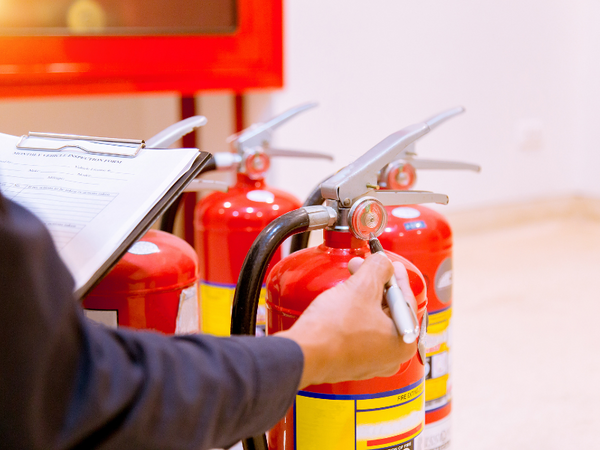
Some fire extinguishers may have been forgotten, especially those in older buildings. Since fire extinguishers have evolved, older ones― including those that haven't expired― should be disposed of if needed.
In addition, fire extinguishers that can no longer be serviced according to the manufacturer's standards or those with parts that are no longer available should be replaced.
Frequently Asked Questions

Is a 20-Year-Old Fire Extinguisher Still Good?
No, a 20-year-old fire extinguisher is not good because it’s past its expiration date. Most extinguishers are built to last about 10 to 12 years.
So, your extinguisher won’t work as it should after 20 years. The pressure might have dropped, or the contents might not spray like they used to. Rust, cracks, or a busted nozzle will also render your fire extinguisher useless.
Your fire extinguisher might also look fine, but its age alone is enough to warrant a replacement. Your best bet is to dispose of it and get a replacement as soon as possible. Remember, you can’t cut corners when it comes to fire safety.
How Often Should You Replace Fire Extinguishers?
You should replace most fire extinguishers every 10 to 12 years. That’s the general lifespan if you’ve got a disposable or non-rechargeable extinguisher, no matter if it’s been used or not. On the other hand, rechargeable extinguishers have to be inspected and possibly recharged every six years.
Even if the extinguisher hasn’t hit the 10-year mark, you should check it regularly. If you see rust, a cracked hose, or a broken seal, it’s time for a replacement. The same goes if the pressure gauge isn’t in the green zone.
How Do I Know if My Fire Extinguisher Is Good?
Know if your fire extinguisher is good by checking the outside. The label should be readable, the body free from dents, rust, or cracks, and the hose firmly attached with no leaks or damage. You should also check if the locking pin is in place and held by a tamper seal.
Then, look at the pressure gauge. If the needle is in the green zone, you’re good. If it’s in the red, it might need recharging or replacing. Don’t forget the inspection tag as well. It should show regular checks. If it hasn’t been inspected in a while, it’s time to do it.
Finally, keep a record of your inspection. Jot down the date and any issues you found. If everything checks out, your extinguisher is good to go. If not, take action.
How Do You Tell if a Fire Extinguisher Is Expired?
You can tell if a fire extinguisher is expired by starting with the manufacturing date. It’s usually stamped or labeled somewhere on the extinguisher. Most models last 10 to 12 years. If it’s older than that, it’s time to get a new one.
Next, check the pressure gauge. If the needle isn’t sitting in the green zone, the pressure might be too low, and the extinguisher won’t work properly. That’s another sign it needs recharging or replacing.
Look at the outside, too. If you see rust, dents, cracks, or any leaks, that extinguisher has seen better days. The same goes for the nozzle and hose. If they’re clogged or cracked, that’s a problem.
Don’t forget to check the tamper seal. It should be intact. If it’s broken or missing, the extinguisher may have been used or tampered with.
In a gist, you have to replace your fire extinguisher if it’s old, damaged, has low pressure, or the seal is broken. It’s better to be safe than to have a faulty fire extinguisher during a fire emergency.
Is There a Better Solution?
Consider getting a fire blanket if you want something that’s simple, fast, and eco-friendly. Unlike fire extinguishers, there’s no pin to pull or aim to figure out. You just pull it out and toss it over the fire. It smothers the flames instantly without making a mess or spraying chemicals all over your kitchen.
The Emergency Fire Blanket also never expires, doesn’t need maintenance, and can be used by anyone—kids, adults, and even seniors. Those are huge pluses in high-stress situations. Plus, fire extinguishers are bulky, while a fire blanket is lightweight and easy to store.
It’s also non-toxic, so you’re not left dealing with fumes or cleanup. Whether it’s a grease fire, an electrical fire, or something sparked by your grill, the Emergency Fire Blanket can handle it fast.
Plus, the Emergency Fire Blanket is reusable as long as it's not damaged after use. Just wipe, fold, and put it back in its pouch. It'll be ready for another use.
Conclusion
While fire extinguishers don't have a universal expiration date, they usually last 10 to 12 years if properly maintained. Disposable models should be replaced every 12 years, while rechargeable ones have to be recharged every six years.
Do you want more protection and peace of mind? Complete a fire kit with a fire blanket, fire spray, flame shield, and fire protection gloves now. While a fire extinguisher helps, having extra protection for your family doesn't hurt. Remember, it's better to have it and not need it than need it and not have it. Stay prepared, hero!


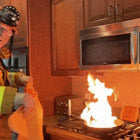 Fire
Fire Safety
Safety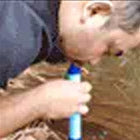 Survival
Survival Protection
Protection New
New
 Fire
Fire Safety
Safety Survival
Survival Protection
Protection New
New



